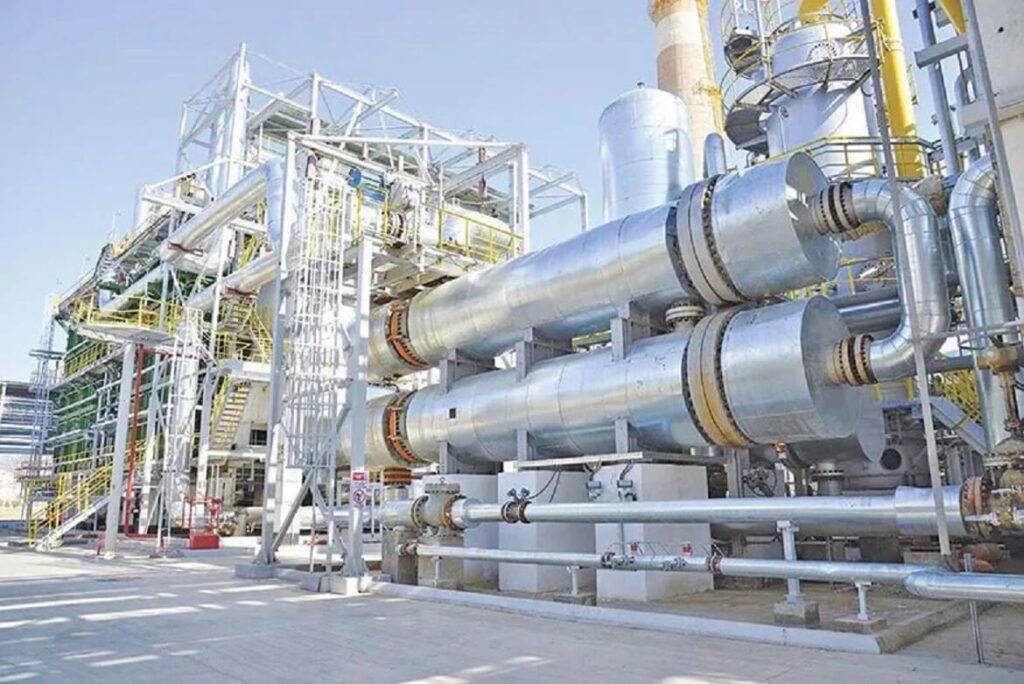Europe is striving to reduce its reliance on Russian natural gas. Following the Russian invasion of Ukraine in February 2022, the European Union significantly increased imports of liquefied natural gas (LNG) from the United States, strengthened energy ties with gas-rich Azerbaijan, and now it reportedly seeks to begin purchasing natural gas from Turkmenistan, the world’s 13th largest producer.

The EU could potentially rely on Turkmen gas supplies via the Caspian Sea, Azerbaijan and Turkey. The challenge, however, lies in the fact that Turkmenistan’s primary export market is China, with current natural gas supplies directed solely to Asian countries. Developing the necessary gas infrastructure will take time for Ashgabat to assume a significant role in the European gas market.
Turkmenistan – ranking 4th in the world in terms of natural gas reserves after Russia, Iran and Qatar – has already signaled its willingness to shift its energy policy vector westward. In April of this year, an international forum to attract investment in the energy sector of Turkmenistan (TEIF 2024) was held in Paris, while in late October, the 29th International Conference and Expo “Oil and Gas of Turkmenistan” (OGT-2024) will be held in Ashgabat. That will likely provide another opportunity for the former Soviet republic to discuss energy cooperation with its European partners.
In mid-May Turkmenistan’s Foreign Minister Rashit Meredow and the European Union’s Special Representative for Central Asia Terhi Hakala discussed prospects for cooperation in energy and transport. Moreover, on June 4, Turkey’s Botas Petroleum Pipeline and the State Oil Company of the Republic of Azerbaijan (SOCAR) signed a deal aiming to jointly arrange natural gas delivery from Turkmenistan to Azerbaijan and onward via Turkey to other countries. All that indicates that Europe sees Ashgabat as an important long-term energy partner.
Indeed, Turkmenistan plays a crucial role in the launch of the Trans-Caspian Gas Pipeline (TCP) project, aimed at establishing an underwater pipeline to bring Turkmen natural gas into the European energy market. Once operational, the TCP is project to transport approximately 32 billion cubic meters of natural gas annually from Turkmenistan to Azerbaijan, across the Caspian Sea, ultimately reaching European countries. For comparison, prior to the war in Ukraine, Russia was supplying 175 billion cubic meters of gas a year to Europe.
The TCP initiative aims not only to help Europe reduce its dependence on Russian energy, but also to assist Turkey in diversifying its gas sources. To put this into perspective, in 2023, Ankara imported 40% of its gas consumption from Moscow). While the Kremlin aims to establish Turkey as a gas hub for selling Russian natural gas to Europe, Ankara appears to have somewhat divergent ambitions. Turkey still seeks to create a gas hub on its territory, although now it aims to purchase large amounts of gas from Turkmenistan, rather than from Russia. But how does Ashgabat view Europe’s and Turkish growing demand for its gas?
“We have good opportunities to export Turkmen natural gas and electricity to Kazakhstan, Azerbaijan and Turkey,” Gurbanguly Berdimuhamedov, Chairman of Turkmenistan’s People’s Council, said in March 2024 at the meeting of the Council of Elders of the Organization of Turkic States (OTS) in the Turkmen capital.
Turkmenistan currently exports electricity to Uzbekistan and Kyrgyzstan, with plans to increase its electricity exports by 8.7% by 2025. However, to begin exporting gas to Azerbaijan and Turkey, and further to Europe, Ashgabat will need to be involved in the construction of the Trans-Caspian Gas Pipeline. At this stage, it remains uncertain who would fund the project. Given the close energy ties between Turkmenistan and the United Arab Emirates, it is conceivable that the UAE-based Abu Dhabi National Oil Company (ADNOC) could play a major role in the realization of the TCP.
Meanwhile, Ashgabat will undoubtedly continue focusing on China as its core export market. During the first quarter of this year, Turkmenistan generated $2.4 billion in income from gas exports to the People’s Republic, which clearly suggests that Beijing will, for the foreseeable future, remain the Central Asian nation’s major energy partner.
That, however, does not mean that Turkmenistan will put all of its eggs in one basket. Besides seeking to export its gas to the West, the landlocked nation of around 6,45 million people is strongly pushing for the construction of the Turkmenistan–Afghanistan–Pakistan–India Pipeline (TAPI) project. According to TAPI Pipeline Company Limited CEO Muhammetmyrat Amanov, Turkmenistan’s section of the pipeline had been completed, but Afghan-Pakistani border disputes, as well as Islamabad’s demands for a revision of gas tariffs and project costs, are preventing the $22.5 billion project from being realized quickly.
The pipeline is expected to transport 33 billion cubic meters of natural gas from the Galkynysh Gas Field in Turkmenistan through Afghanistan into Pakistan and then to India. For Pakistani Minister of State for Petroleum, Musadik Malik, TAPI is not merely a pipeline but a “transformation agenda for the region”, while for the Taliban-ruled Afghanistan it a “great and strategic importance.” The fact that in June Turkmen President Serdar Berdimuhamedov and Pakistan’s Federal Minister for Industries and Production Rana Tanveer Hussain discussed the TAPI project, and that Turkmen and Taliban officials reportedly made progress regarding the construction of the 1,814 kilometer-long (1,127) pipeline, could mean that the Kabul and Islamabad plan to soon put their words into action, and begin working on the implementation of the strategically important project.
Once completed, TAPI could also facilitate Europe’s access to Turkmen gas. According to Malik, the gas will flow through the pipeline to Pakistan, and it will then be transported to Europe by train in the form of LNG, although a cost-benefit of such an action remains questionable.
For Turkmenistan, TAPI will undoubtedly hold a special place in its energy policy, especially since it is highly unclear how China – Ashgabat’s largest gas importer – and Russia – a natural candidate to meet European countries’ gas needs – view the Central Asian nation’s ambitions to start exporting energy to the West.
Author: Nikola Mikovic – Journalist, researcher and analyst based in Serbia.
(The views expressed in this article belong only to the author and do not necessarily reflect the editorial policy or views of World Geostrategic Insights).
Image Source: turkmenistan.gov.tm







